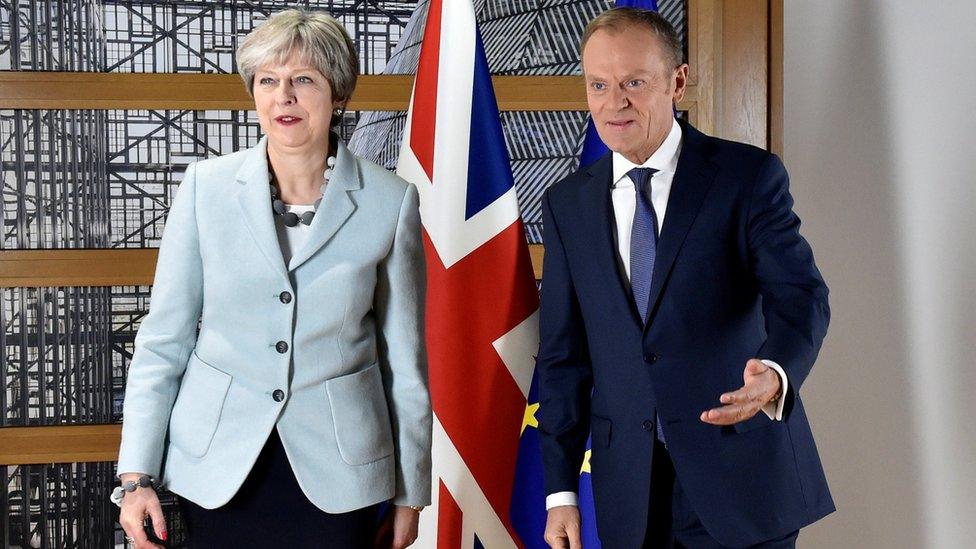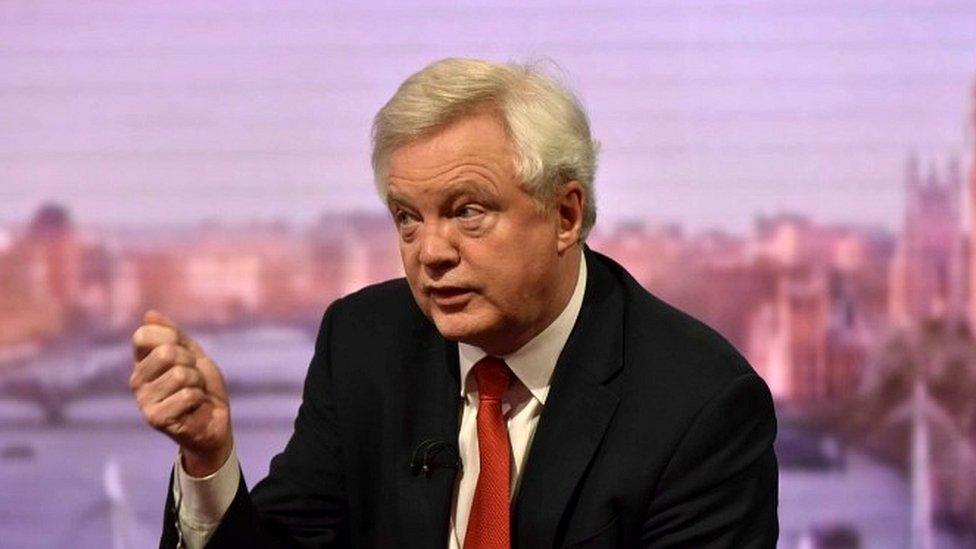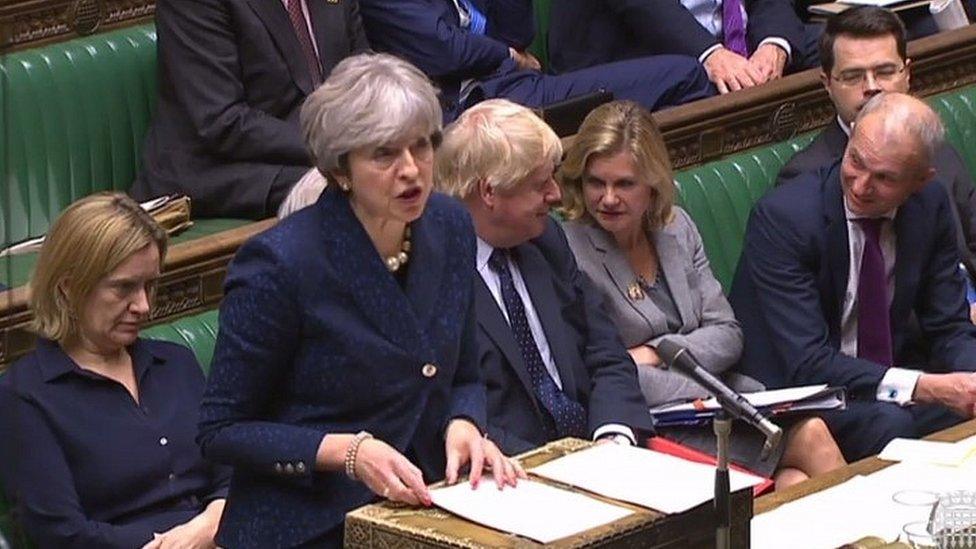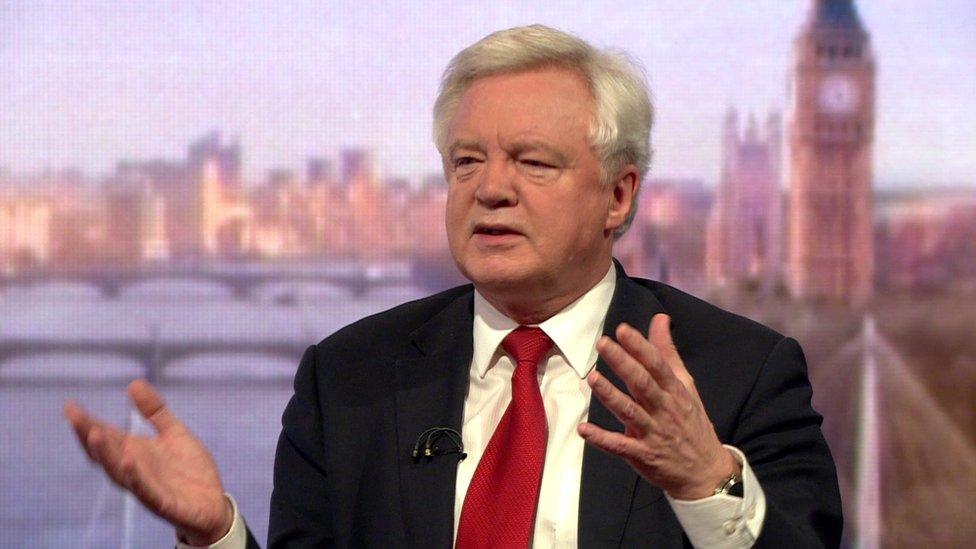Donald Tusk calls Brexit talks a furious race against time
- Published

Donald Tusk said the EU needed to show "unity" in the next phase of talks
The UK and the EU face a "furious race against time" to finalise Brexit talks before March 2019, the head of the European Council says.
Donald Tusk urged EU leaders to show unity as they try to negotiate what the future relationship will look like and to set up transitional arrangements.
The EU is set to agree this week that enough progress has been made so far to move on from the first phase of talks.
The UK has been told not to "backtrack" on last week's divorce deal.
The comment from EU chief negotiator Michel Barnier came after UK Brexit Secretary David Davis suggested the divorce agreement unveiled by Theresa May amounted to a "statement of intent" rather than a binding agreement.
Mr Davis - the UK's Brexit secretary - said he was quoted out of context.
But European Parliament negotiator Guy Verhofstadt said the "unacceptable remarks" would harm "good faith" in the process.
The UK is set to leave the EU in March 2019, two years after Mrs May served formal notice of Brexit.
Both sides hope to finalise a deal by October 2018 on the future relationship, including trade, so the UK and European Parliaments have time to vote on it before the UK leaves.
In his formal letter on Tuesday inviting leaders to this week's EU summit, Mr Tusk told the 27 member states: "This will be a furious race against time, where again our unity will be key."
'Gentlemen's deal'
On Sunday, Mr Davis said guarantees on the Northern Ireland border - included in a joint EU-UK report published on Friday - were not legally binding unless the two sides reached a final deal.
But he told LBC Radio on Monday they would be honoured whatever happened.
A European Commission spokesman said the first-phase deal on the Northern Ireland border, the divorce bill and citizens' rights did not strictly have the force of law.
"But we see the joint report of Michel Barnier and David Davis as a deal between gentlemen and it is the clear understanding that it is fully backed and endorsed by the UK government."

'Noted in Brussels'

By BBC Brussels reporter Adam Fleming
The Brexit secretary's comments at the weekend about the legality of what's been agreed so far between the UK and the EU have been widely noted in Brussels, and a handful of member states have brought them up with me.
"To say we are annoyed is putting it too strongly, though," said one diplomat. "This is the sort of stuff we expected," said another. "It's never good when someone questions an agreement 24 hours after it was done," a third official suggested.
This forms the backdrop to the discussion taking place among EU ministers about the European Council's draft guidelines for Phase 2 of the Brexit talks.
But it is not clear if it will lead to any changes to the draft text that will be discussed by leaders on Friday morning. The document already states in its first paragraph that progress in phase 2 of the talks is contingent on commitments from phase 1 being kept.

Mr Verhofstadt has tabled two amendments for MEPs to debate on Wednesday, one of which says Mr Davis's comments risk undermining "the good faith that has been built during the negotiations".
Another amendment calls on Britain to "fully respect" last week's Brexit deal and ensure it is "fully translated" into a draft Withdrawal Agreement.
On Monday morning, he tweeted:
Allow X content?
This article contains content provided by X. We ask for your permission before anything is loaded, as they may be using cookies and other technologies. You may want to read X’s cookie policy, external and privacy policy, external before accepting. To view this content choose ‘accept and continue’.
And at a press conference in Brussels, he said the UK must "stick to its commitments" and put them into a draft Withdrawal Agreement "as soon as possible" if there is to be progress in the second phase of talks.
Mr Davis replied with two tweets of his own, promising to work with Mr Verhofstadt to allay his concerns:
Allow X content?
This article contains content provided by X. We ask for your permission before anything is loaded, as they may be using cookies and other technologies. You may want to read X’s cookie policy, external and privacy policy, external before accepting. To view this content choose ‘accept and continue’.
Allow X content?
This article contains content provided by X. We ask for your permission before anything is loaded, as they may be using cookies and other technologies. You may want to read X’s cookie policy, external and privacy policy, external before accepting. To view this content choose ‘accept and continue’.
The European Parliament gets a formal vote on the final Brexit deal but it has also been holding debates and issuing resolutions throughout the process to make its voice heard.
Mr Verhofstadt has introduced the amendments alongside the leaders of four other European Parliament political groups.
- Published11 December 2017

- Published10 December 2017
